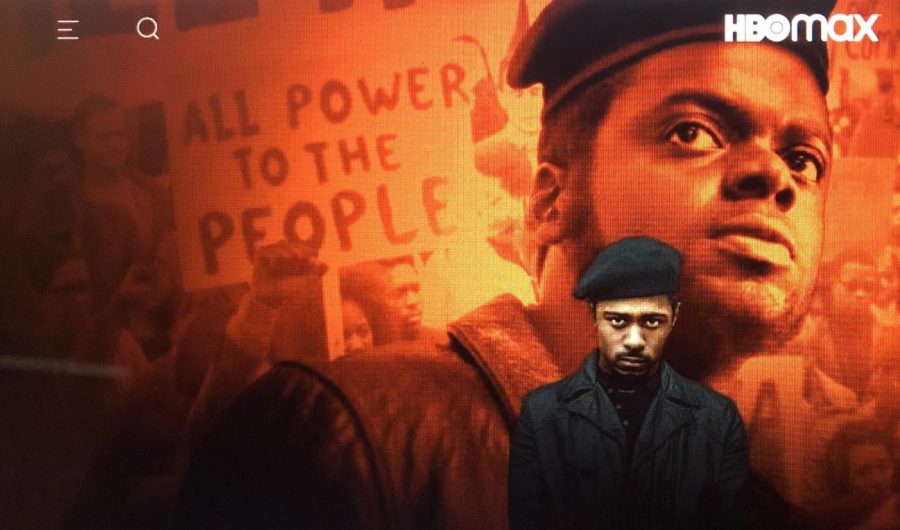Review: Judas and the Black Messiah
BLACK HISTORY IN CINEMA: “Judas and the Black Messiah” serves as a lesson of history as well as an intriguing drama.
February 16, 2021
“Judas and the Black Messiah” was released Feb. 12 in theatres and for streaming on HBO Max to share the story of the revolutionary side of the Civil Rights Movement, known as the Black Panther Party. Based on a true story, the movie centers around Bill O’Neal (LaKeith Stanfield) who is offered a deal to be released from custody if he agrees to join the Illinois Black Panther Party to gain information for the FBI on the chapter’s chairman, Fred Hampton (Daniel Kaluuya).
Most anyone can guess the theme of the film based on the title, but the performances of “Judas” by LaKeith Stanfield and the “Black Messiah” by Daniel Kaluuya keep viewers anxiously engaged in this age-old tale. Kaluuya depicts the role of the “spokesperson” to a tee, illustrating flawless charisma and passion in each example of him being a role model and motivator for his chapter. Stanfield’s portrayal of the spy for an FBI agent fills one with apprehension as it fulfills the movie trope of the audience knowing a secret that most characters don’t.
To me, the most powerful aspect of this movie was how they humanized people that have been massively glossed over in history. I was not taught much about the Black Panthers in school and I can bet most people can say the same thing. This movie masterfully blended both teaching history and sharing a look into the personal stories of people behind the Black Panther movement. In ways like Hampton speaking to the mother of a Panther murdered by police or in sharing the fears of Hampton’s pregnant wife about bringing a baby into the warzone of their movement, the writers give the characters emotional stories when, in the past, they have simply been written off as terrorists.
More specifically though, I would have liked the film to go more in-depth about the character of Bill. Of course, the movie is not simply just about him, but there is a lack of understanding of who he is and why he is in the situation he is in. Maybe this is purposeful by the writers, but the only information we know about Bill is from the start of the storyline of the movie. The plot and character development of Bill may have been even more engrossing had we known more about his past and even his present during the story.
On another note, audiences need to remember that a movie is not history. Understandably, writers and directors take artistic liberties in historical films to center the messages of the project. But, as long as that is taken into consideration, “Judas and The Black Messiah” is an important story for the public to hear. Movies can be used as a tool to educate people on significant issues, and although not every single event in the film exactly matches history, the goal to impact and inform the viewer was greatly achieved. The messages and facts within the film powerfully shed light on conversations about race we still need to be having today, especially in a predominantly white area.
The timing of this release was not accidental. Black History Month is a time for us to reflect on the stories of our country’s past and to learn the history that was not always taught throughout the decades. The Black Panthers were marked a terrorist group, but today they remind us that revolutionaries are an essential part of any movement. Their rebellious ideology demanded change and they deserve to have their stories told. Although “Judas and the Black Messiah” is historical, hearing this story is vital in our current world. The stories within this film remind audiences of how much progress still must be made in the fight against injustice.


























